Product management is one of the most dynamic and influential roles in any organization. As product managers (PMs), we are responsible for shaping what a company will sell tomorrow, acting as the bridge between engineering, design, marketing, and customer needs. But what separates great product managers from average ones? Over my 20+ years in product management, I’ve seen that the best PMs master a set of critical skills that go far beyond writing specs and managing backlogs.
The Foundation: Visionary Leadership
Great product managers do more than execute—they set the strategic direction for their teams and inspire stakeholders to rally around a shared vision. Visionary leadership in product management means understanding market trends, anticipating future customer needs, and creating products that don’t just respond to demand but shape it. PMs who master this skill go beyond the “how” and focus on the “why,” ensuring that every decision aligns with a long-term vision that fosters innovation.
A strong PM empowers their teams, providing clarity on goals while giving them autonomy to execute. This leadership approach doesn’t just align efforts—it cultivates a culture of innovation where teams feel invested in the product’s success.
The Foundation: Customer Understanding
The best product managers don’t just execute; they deeply understand their customers. This means actively engaging with users, collecting feedback, and synthesizing insights into actionable decisions. A PM who doesn’t spend time with customers is operating in the dark.
Great PMs build systems for continuous customer feedback through direct interviews, A/B testing, and data analytics. But understanding customers isn’t just about collecting information; it’s about translating that knowledge into impactful product decisions.
Excellence in Communication: The Bridge Between Vision and Execution
A PM’s ability to communicate effectively is just as important as their technical and strategic skills. Whether it’s rallying a team around a product vision, gaining buy-in from stakeholders, or translating customer needs into clear requirements, communication is at the heart of product success.
The best PMs tailor their messaging based on their audience. When working with engineers, they translate business objectives into structured technical requirements. When engaging executives, they frame discussions around business impact rather than feature details. Active listening is equally crucial—great PMs recognize different communication styles, ensuring alignment across diverse teams. A study by Harvard Business Review found that clear, well-structured communication improves cross-functional team efficiency by 40%.
The Art of Influence Without Authority
Unlike executives or direct managers, product managers rarely have formal authority over the teams they work with. Engineers don’t report to PMs, designers aren’t required to follow their lead, and stakeholders often have competing priorities. This means PMs must become experts at influence.
Strong communication and trust-building are key. That collaboration starts with PMs who know how to motivate teams, align interests, and ensure that everyone is working toward a shared vision.
Translating Complexity into Clarity
One of the most underrated PM skills is the ability to simplify complexity. Product managers often sit at the intersection of multiple disciplines—engineering, business strategy, and user experience. Their job is to take highly technical, nuanced information and translate it into clear, actionable insights for different audiences.
For example, when communicating with developers, PMs need to provide precise, structured requirements. When speaking with executives, they must shift gears and articulate the business impact of a feature without getting bogged down in technical details.
The Trust Factor: Building Strong Relationships
A product manager’s ability to build trust with their teams can make or break a product’s success. Developers, designers, and marketing teams all need to believe in the PM’s vision. Trust comes from demonstrating deep knowledge, sharing customer insights, and being transparent about decision-making processes.
One practical way to build trust is by consistently sharing user feedback. Many engineers rarely get direct exposure to customers, which can make their work feel disconnected from real-world impact. PMs who regularly bring engineers into customer conversations help create a shared sense of purpose and motivation.
Balancing Strategy and Execution
The best PMs don’t just focus on what’s happening today; they think about what’s coming next. Strategic thinking is what separates tactical project managers from true product leaders. PMs need to zoom out to see market trends, competitive shifts, and customer needs beyond the next sprint.
At the same time, they must ensure smooth execution. This balance between strategy and delivery is where many PMs struggle. Mind the Product ran a poll in 2020 and found that over 80% of product managers either had had or were then experiencing burnout in their day-to-day work, making it difficult to think strategically. The key is to develop habits that allow for setting aside time for strategic reflection while maintaining strong execution discipline.
Where to Start? Building Product Management Skills
For those looking to strengthen their product management skills, start with:
- Talking to Customers More Often: Schedule regular customer interviews, analyze data, and keep feedback loops active. Become the voice of the customer.
- Improving Communication and Influence: Learn how to tailor messages for different audiences, from developers to executives.
- Strengthening Business Acumen: Understand the revenue impact of product decisions and how they tie into the company’s broader goals.
- Building Trust with Teams: Share insights transparently, recognize contributions, and align everyone around a common purpose.
- Making Time for Strategic Thinking: Avoid getting lost in the weeds—set aside time to step back and look at the big picture.
The Bottom Line
Product management isn’t just about managing features; it’s about driving real business outcomes through customer-centric thinking, influence, and strategic execution. The best PMs don’t just build products; they build trust, alignment, and momentum within their organizations. Visionary leadership and excellent communication aren’t just nice-to-haves—they are the backbone of effective product management. Whether you’re an aspiring PM or a seasoned veteran, continuously honing these skills will set you apart in a highly competitive field.
Ready to turn insights into impact?


















